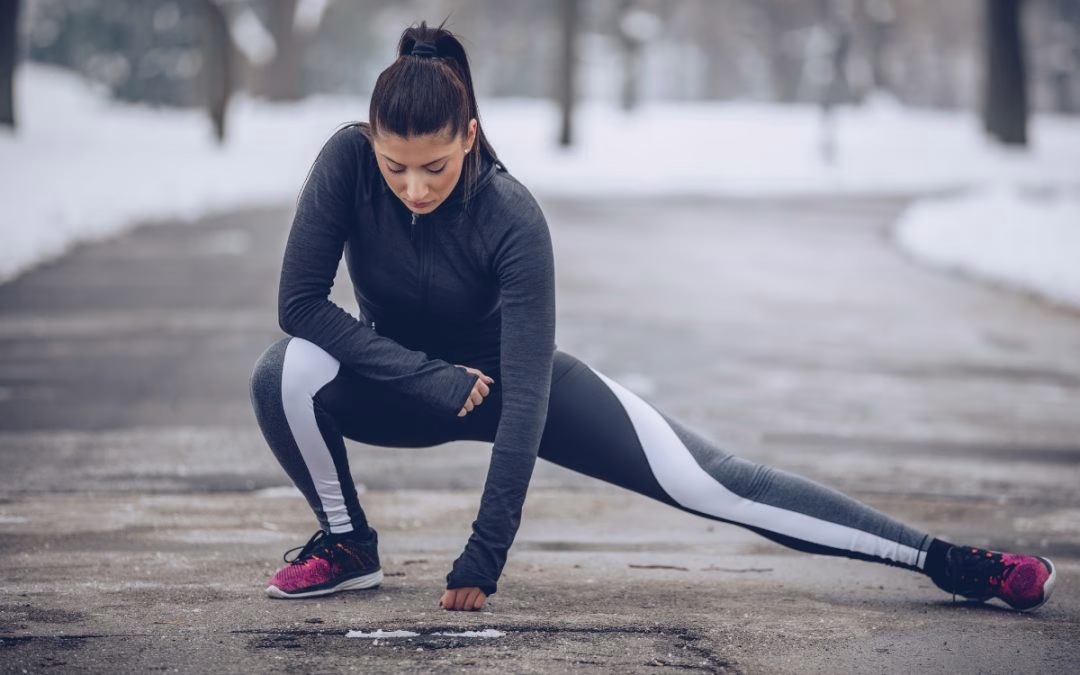
As the temperatures stay chilly in Sevierville, many people may feel hesitant to continue their outdoor exercise routines. The thought of braving the cold can be daunting, but staying active throughout the winter has significant health benefits, from boosting your immune system to improving your mood. Whether you enjoy jogging on the City of Sevierville - Walking Trails or hiking in the Great Smoky Mountains, it’s important to take extra precautions to stay safe while working out in colder weather.
This blog will provide essential tips on how to stay warm, avoid injuries, and take care of your body during winter workouts. And if an injury or illness does occur, AFC Sevierville is here to provide high-quality, same-day medical care to get you back on track.
Dressing for Success: Layering is Key
One of the most important steps in preparing for cold-weather exercise is dressing appropriately. Many people make the mistake of overdressing, only to find themselves sweating and uncomfortable during their workout. The key to staying warm and dry is layering your clothing.
- Base Layer: Choose a moisture-wicking fabric to keep sweat away from your skin. Avoid cotton, as it retains moisture and can make you feel colder.
- Middle Layer: This insulating layer should help trap heat while remaining breathable. Fleece or wool are excellent choices.
- Outer Layer: A windproof and waterproof shell will protect you from the elements, especially if you’re running or biking in wet or snowy conditions.
Additionally, don’t forget to cover extremities like your hands, feet, and ears, as they are most susceptible to the cold. Wear thermal gloves, moisture-wicking socks, and a hat or headband to retain body heat.
Warm Up and Cool Down Properly
Cold temperatures can make your muscles feel tighter, increasing the risk of strains and injuries. To prevent this, it’s essential to warm up before starting your workout and cool down properly afterward.
- Dynamic Warm-Up: Instead of static stretching, perform dynamic movements like arm circles, leg swings, or brisk walking to get blood flowing and loosen up muscles.
- Post-Workout Cool Down: Gradually bring your heart rate down by walking or lightly jogging for a few minutes. Finish with gentle stretching to maintain flexibility and reduce muscle stiffness.
Watch the Weather and Be Aware of Health Risks
Before heading outside, always check the forecast for temperature, wind chill, and precipitation. Extreme cold, strong winds, or icy conditions can make outdoor exercise unsafe.
Additionally, be aware of cold-related health risks such as:
- Hypothermia: This occurs when body temperature drops too low due to prolonged exposure to the cold. Symptoms include intense shivering, confusion, slurred speech, and fatigue. If you experience any of these signs, seek medical attention immediately.
- Frostbite: Exposed skin, especially on the cheeks, nose, ears, fingers, and toes, is vulnerable to frostbite. Numbness, a stinging sensation, or pale, waxy skin may indicate early frostbite. Protect exposed areas and seek warmth immediately if symptoms appear.
If you experience symptoms of hypothermia or frostbite, AFC Sevierville is equipped to assess and treat these conditions promptly.
Preventing Injuries on Snow and Ice
Winter workouts come with an increased risk of slipping on icy sidewalks or trails. To minimize injury risk:
- Choose footwear with good traction and consider using traction devices if running or walking on snow or ice.
- Slow down and shorten your stride to maintain better balance.
- Stick to well-lit, maintained paths like local parks or running tracks to avoid hidden icy patches.
- If possible, exercise during daylight hours when temperatures are slightly warmer and visibility is better.
If you do sustain an injury such as a sprain, strain, or fracture, our clinic provides fast and efficient treatment, including X-rays and injury management.
Stay Hydrated and Protect Your Skin
Many people associate dehydration with hot weather, but staying hydrated is just as important in the winter. Cold air can be dry, increasing fluid loss through breathing and sweat. Drink water before, during, and after your workout to stay properly hydrated.
Additionally, don’t forget sunscreen. The sun’s UV rays can still cause sunburn in the winter, especially when reflecting off snow. Apply a broad-spectrum sunscreen to exposed skin before heading outside.
When to Visit AFC Sevierville
While proper preparation can help prevent many cold-weather exercise risks, accidents and illnesses can still happen. Visit us if you experience:
- Sprains, strains, or fractures from slips and falls.
- Frostbite or symptoms of hypothermia.
- Severe muscle cramps or dehydration.
- Persistent cold-like symptoms that could indicate the flu or another winter illness.
Our walk-in clinic provides convenient, same-day treatment for non-life-threatening injuries and illnesses. We accept most major insurance plans and offer affordable self-pay options to ensure you get the care you need without delay.
Exercising outdoors in cold weather can be enjoyable and beneficial with the right precautions. By dressing appropriately, warming up properly, monitoring weather conditions, and taking steps to prevent injuries, you can safely stay active all winter long. Stay safe, stay warm, and keep moving this winter! If you have any health concerns or need medical assistance, visit AFC Sevierville today.

